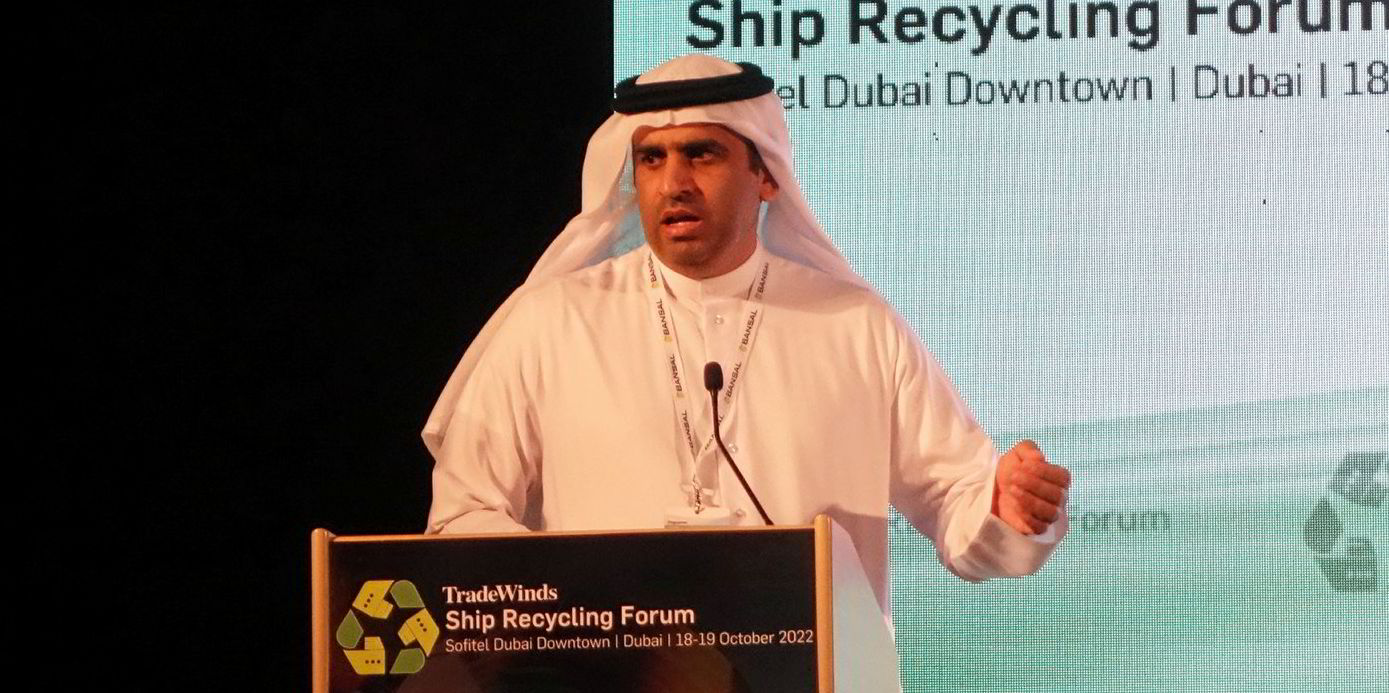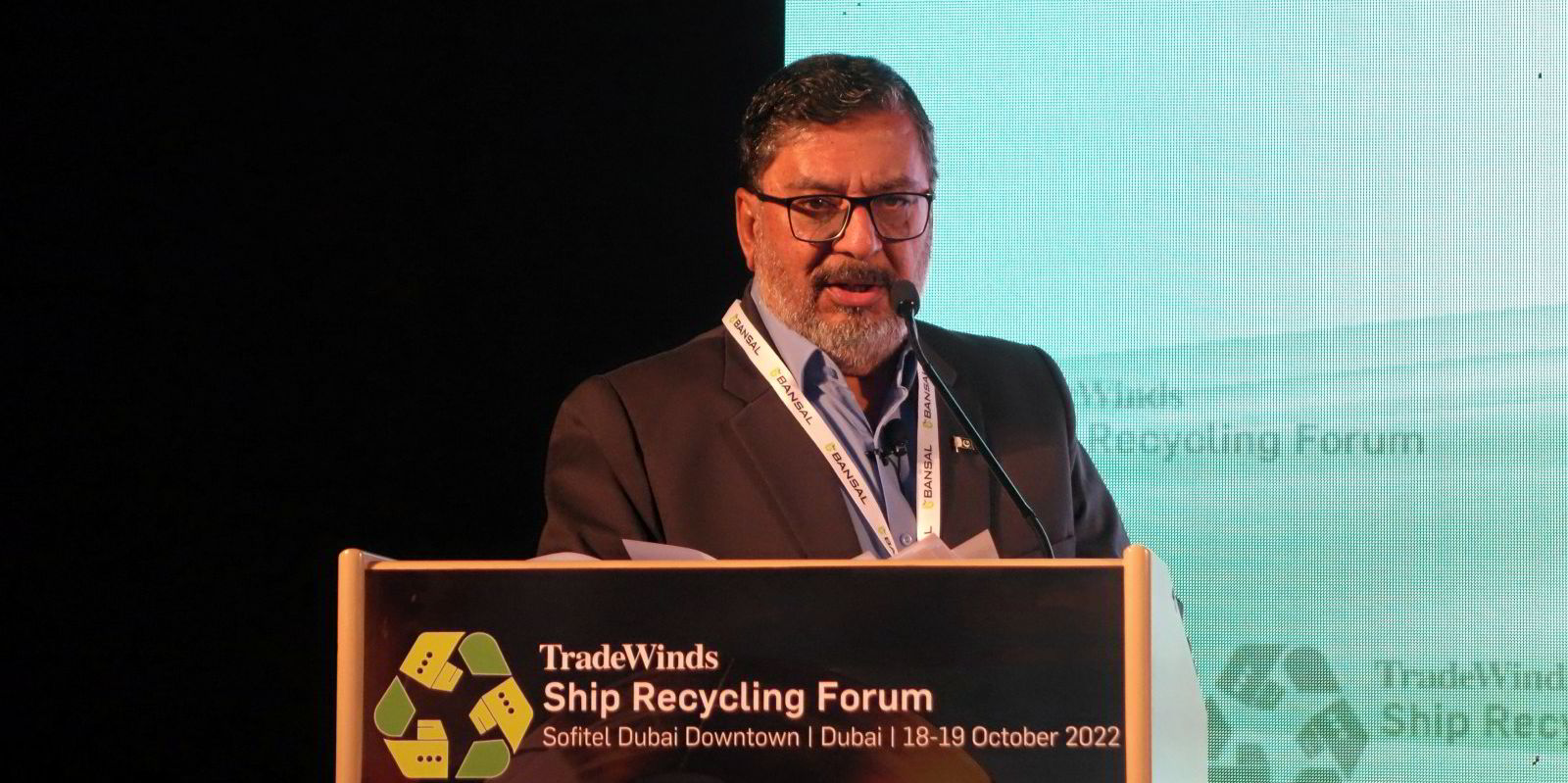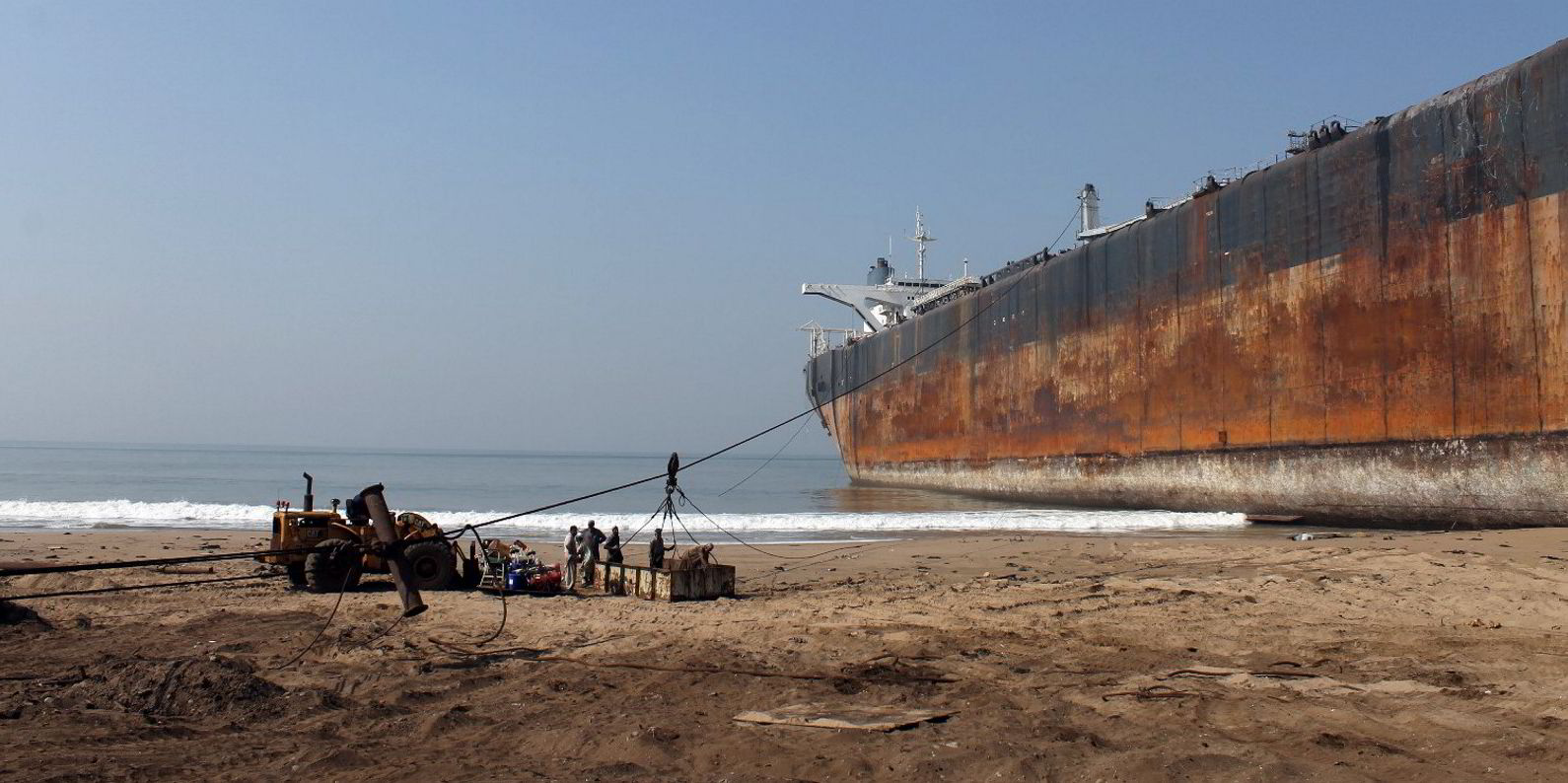The United Arab Emirates has drafted robust legislation that will include a ban on domestically flagged ships being recycled using the beaching method.
The legislation, which in many ways matches that of the European Union, will require the recycling of UAE-flag vessels sold to yards outside the country to be undertaken at facilities with a dry dock or equivalent infrastructure having impermeable flooring where no beaching takes place.
In addition, each UAE-flag newbuilding will be required to have on board an inventory of hazardous materials.
Details of the legislation were revealed by the UAE director of maritime transport, Captain Abdulla Al Hayyas, who said they are part of a broader new UAE Maritime Law that is undergoing final approvals to replace the existing law that was implemented 40 years ago.
Serious threat
The legislation, formulated by the Ministry of Energy & Infrastructure under which Al Hayyas’s department falls, applies to all ships above 500 gt that fly the UAE flag, or foreign ships that are recycled in the UAE.
“The UAE recognises uncontrolled ship recycling constitutes a serious threat to the environment and possible irreversible health hazard,” Al Hayyas said.
“We cannot have UAE vessels polluting in the UAE or anywhere else outside the UAE.”
The main legislative changes of the new Maritime Law, under which the recycling legislation falls, are the relaxation of ship registry conditions to permit vessels that are 100% foreign-owned to fly the UAE flag.
Previously, ships had to have at least 51% UAE ownership.
Al Hayyas stressed that the UAE does not intend to become an open register, and the vessels will be required to have a genuine link with the country, such as being managed out of it. He indicated that it is targeting quality vessels with quality owners who have easy access to financing.
Good reputation
The good reputation of the UAE, he said, is of prime importance, and it is not willing to risk damaging this with substandard ships under its flag.
Asked whether the ship recycling legislation includes mechanisms to prevent the reflagging of ships prior to being sold to non-compliant facilities for recycling, Al Hayyas said the matter is under internal discussion.
“It is a concern. There will be some sort of provision to prevent this.”
The focus on quality owners should reduce the reflagging risk, he said, and recycling standards should improve to the point where this will no longer be a concern.





